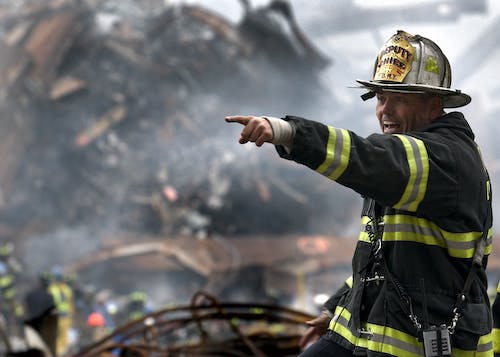
Wildfires, hurricanes, floods, tornadoes, and other disasters often leave properties destroyed. While rebuilding and repairs are a top priority for those left recovering from a disaster, unscrupulous scammers are ready to take advantage. Business owners and any survivors looking to rebuild and repair need to be cautious. Victims report a variety of scams including fake insurance calls, disaster cleanup schemes, rental listing, donation, and imposter scams. Business Consumer Alliance is warning all, especially those recently hit by disasters, to be on guard for scams.
Signs of a Disaster Scam
Scammers may act as insurance agents, contractors, government officials, and even charities to try and defraud disaster victims. Others operate rental listing scams. While the details of the scam may vary, some common characteristics of a scam are:
- Up-front payment demands or a demand for final payment before work is completed.
- Only payment methods accepted are cash, wire transfer, gift card, cryptocurrencies, or peer-to-peer payment apps.
Check out these common scams:
Flood Insurance Calls
Scammers often make robocalls to contact victims making false claims that their insurance premiums have lapsed and in order to be covered for damages, they have to make an immediate payment. This is a scam to get money.
If you receive calls like this, hang up and contact your insurance agent or insurance company. They will assist you if you need to make a payment or if other information is needed. You should also report the scam to the National Center for Disaster Fraud Hotline at 1-866-720-5721.
Disaster Cleanup Schemes
After a disaster, scammers often appear in the neighborhood claiming to be working in the area offering cleanup and removal services. Watch for anyone quoting outrageous price quotes to do work. It may be an unlicensed or unscrupulous contractor that offers to do cleanup work or repairs for an up-front fee. After they receive the money, they disappear. Or they provide work that is shoddy, incomplete, or doesn’t meet insurance standards.
Always check out the person or business offering to do work for you. Write down the person’s name, and their vehicle information, just in case you need to report them to the authorities. Make sure they are licensed and bonded to do the work. Check their references and obtain a written estimate and contract before making any payment. Avoid paying by cash. Instead pay with a credit card or check for added protection. If you are not satisfied with the work or if they fail to provide the services, you can file a dispute or cancel the payment. If you agree to the contractor's services and change your mind, you have three days to cancel the contract. Report unlicensed contractors and file a complaint if you have problems with the service.
Donation Scams
When disasters hit many are devastated by the damages. Various losses oftentimes make basic necessities hard to come by. You may want to help those in need by making a donation. Unfortunately, some exploit the generosity of others and come up with plots to defraud the kindhearted. But giving wisely can help you avoid giving to a scam.
If you are asked to give to a charity or cause, do your homework. Consider only donating to charities and organizations you trust that have a proven track record for assisting with disaster relief. Double check that the person soliciting you is actually with the organization to which they claim affiliation. You can do so by contacting the charity or organization yourself and asking questions. Check to see if the fundraiser or charity has to be registered in your state. Be cautious about messages posted on social media asking for donations or phony GoFundMe accounts. You can obtain more information about giving by contacting some of the following organizations:
Rental Listing Schemers
Scammers advertise fake rental listings to defraud people that are misplaced or looking for a residence while they rebuild. The properties may not exist or are unavailable. The scammer's goal is to collect money and run. They tell renters to wire money, ask for security deposits or rent before meeting to sign a lease or even view the property. Report any rental scams to your local law enforcement agency and also to the business where the listing is advertised.
FEMA, Safety Inspector, and Government Impersonators
Watch for imposters posing as Federal Emergency Management Agency (FEMA) representatives, American Red Cross or government officials who charge a fee to apply or qualify for financial assistance. Be aware that con artists often use spoofing to make it appear that they are official. Government officials do not call, email, or text requesting financial and sensitive personal identity information.

Steps to Rebuild the Right Way
It is important to hire someone that is reputable and skilled. If your state requires contractors to be licensed, verify that the business or individual is licensed and insured. Ask for the contractor’s ID, license, and proof of insurance.
Get at least three bids from reputable companies. Check reviews, reputation reports, and past experience before hiring anyone. Avoid someone using high-pressure tactics or individuals that try to rush you into an agreement.
Never give financial or personal information to anyone or agree to pay unless you have verified that they are legitimate. Don’t give your insurance policy number or coverage details to anyone that you are not contracted with.
Contact your local building department to determine the proper procedure for rebuilding and debris cleanup. Always get a written agreement before any work starts or payment is made. Make sure the proper permits are obtained for the job.
Where to Get Help
If you suspect fraud, you can report it to the Federal Emergency Management Agency (FEMA) ,the Federal Trade Commission (FTC), the Department of Homeland Security's Office of the Inspector General, or the Department of Justice (DOJ) Fraud Hotline. You can also file a report with your local authorities.
Follow Business Consumer Alliance on Facebook for scam alerts, tips, consumer topics, and more.